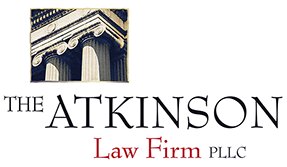Best Wrongful Death Lawyers in North Carolina
Share your needs with us, get contacted by law firms.
Free. Takes 2 min.
Or refine your search by selecting a city:
List of the best lawyers in North Carolina, United States
About Wrongful Death Law in North Carolina, United States
Wrongful death law in North Carolina provides a legal avenue for the surviving family members of a deceased person to seek compensation when a loved one dies due to someone else’s negligence, recklessness, or intentional actions. North Carolina’s wrongful death statutes are designed to help families recover financially and hold responsible parties accountable when their actions result in a fatality that should have been preventable. These cases often arise from incidents such as car accidents, medical malpractice, workplace accidents, or dangerous products.
Why You May Need a Lawyer
Seeking legal help in wrongful death cases is important due to the complexity of the law and the emotional challenges involved. A lawyer can be especially helpful in situations such as:
- Unclear liability or multiple parties involved
- Insurance companies disputing or denying wrongful death claims
- Significant financial losses including lost wages, funeral costs, or loss of companionship
- Complex evidence requirements or the need for expert testimony
- Negotiations with defendants who have legal representation
- Situations where a governmental entity may be responsible
- Conflicts among family members over who controls the estate or can bring the claim
An experienced wrongful death attorney can guide families through the legal process, ensure procedural requirements are met, maximize compensation, and handle communication with the opposing party so families can focus on healing.
Local Laws Overview
North Carolina has specific statutes governing wrongful death claims, primarily found under North Carolina General Statutes Section 28A-18-2. Key aspects include:
- Who can file a claim: The rightful person to file a wrongful death lawsuit in North Carolina is the personal representative (executor or administrator) of the deceased’s estate, not individual family members.
- Eligible compensation: Recoverable damages may include funeral and burial expenses, medical bills related to the fatal injury, pain and suffering experienced by the deceased, lost income, loss of services, companionship, care, and guidance.
- Statute of limitations: Wrongful death claims must usually be filed within two years from the date of death.
- Distribution of damages: Any recovery is distributed to surviving family members according to North Carolina’s inheritance laws, regardless of the will.
- Comparative fault: North Carolina follows the strict rule of contributory negligence, which may bar recovery if the deceased was found to be even partially responsible for the incident.
Frequently Asked Questions
What qualifies as a wrongful death in North Carolina?
A wrongful death occurs when a person dies due to the negligent, reckless, or intentional actions of another. The death must have been preventable and caused by the misconduct of a third party.
Who is allowed to file a wrongful death lawsuit?
Only the personal representative of the deceased person’s estate may file a wrongful death lawsuit in North Carolina. Family members may receive damages, but they do not initiate the lawsuit unless they are the estate representative.
How long do I have to file a wrongful death claim?
The statute of limitations for wrongful death cases in North Carolina is typically two years from the date of death. Missing this deadline often means losing the right to pursue compensation.
What types of damages can be recovered?
Damages may cover funeral and burial expenses, medical expenses, pain and suffering of the deceased, lost income, loss of companionship or consortium, and in some cases punitive damages.
Can I file a wrongful death claim if my loved one was partially at fault?
North Carolina’s pure contributory negligence rule may prevent recovery if the deceased was found even one percent at fault for the fatal incident.
What should I do first if I suspect a wrongful death?
Contact a qualified wrongful death attorney as soon as possible to discuss the facts, gather evidence, and ensure all deadlines are met.
How are damages distributed in a wrongful death case?
Damages are distributed to the deceased’s heirs according to North Carolina’s intestate succession laws, regardless of the deceased’s will.
Is there a difference between criminal charges and a wrongful death claim?
Yes, wrongful death cases are civil lawsuits seeking financial compensation and are separate from criminal proceedings that may result in penalties such as imprisonment.
Do all wrongful death cases go to trial?
Most wrongful death claims are settled out of court through negotiations, but some cases do proceed to trial if a fair settlement cannot be reached.
How much does it cost to hire a wrongful death attorney?
Many wrongful death attorneys work on a contingency fee basis, meaning they receive payment only if you win your case. Initial consultations are often free.
Additional Resources
If you or your family needs additional information or support, these resources may be helpful:
- North Carolina Judicial Branch - Information on court procedures and filing claims
- North Carolina State Bar - Find licensed attorneys and get guidance on legal questions
- North Carolina Department of Justice - Victim assistance programs and crime victim compensation
- Local bar associations - Referral services for wrongful death attorneys
- Legal Aid of North Carolina - Some limited support for eligible families with civil legal needs
Next Steps
If you believe you have a wrongful death case, here are steps you should consider:
- Gather all relevant documents, such as death certificates, medical records, accident reports, and any insurance policies.
- Act promptly to ensure you do not miss the two year statute of limitations for filing a claim.
- Consult with an experienced wrongful death attorney to discuss your case and determine the best course of action.
- Allow your attorney to guide you through the investigation, insurance claims, legal filings, and settlement negotiations.
- Rely on legal professionals for updates, support, and advocacy while you focus on your family’s emotional well being.
Navigating a wrongful death claim is complex. Having the right legal advice ensures you protect your rights and get fair treatment under North Carolina law.
Lawzana helps you find the best lawyers and law firms in North Carolina through a curated and pre-screened list of qualified legal professionals. Our platform offers rankings and detailed profiles of attorneys and law firms, allowing you to compare based on practice areas, including Wrongful Death, experience, and client feedback.
Each profile includes a description of the firm's areas of practice, client reviews, team members and partners, year of establishment, spoken languages, office locations, contact information, social media presence, and any published articles or resources. Most firms on our platform speak English and are experienced in both local and international legal matters.
Get a quote from top-rated law firms in North Carolina, United States — quickly, securely, and without unnecessary hassle.
Disclaimer:
The information provided on this page is for general informational purposes only and does not constitute legal advice. While we strive to ensure the accuracy and relevance of the content, legal information may change over time, and interpretations of the law can vary. You should always consult with a qualified legal professional for advice specific to your situation.
We disclaim all liability for actions taken or not taken based on the content of this page. If you believe any information is incorrect or outdated, please contact us, and we will review and update it where appropriate.
Browse wrongful death law firms by city in North Carolina
Refine your search by selecting a city.
















